New youth club 'gives back to next generation'
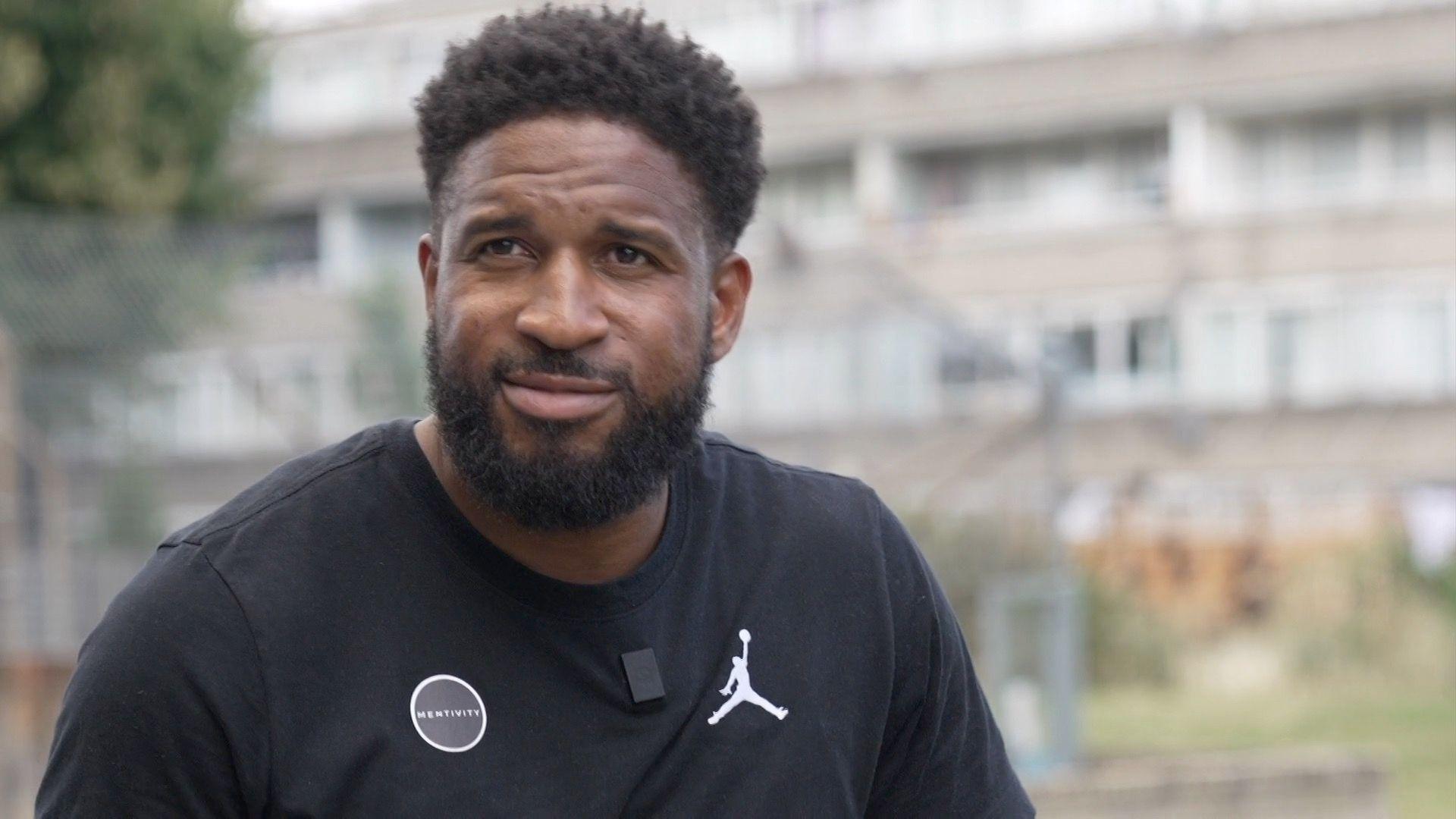
Sayce Holmes-Lewis is opening a new youth centre - on the estate where he grew up
- Published
A London youth organisation is opening its first ever youth club - on the estate where its founder grew up.
South London-based group Mentivity said the opening of the centre on the Aylesbury Estate was part of its mission to “reclaim spaces” for young people.
Data from the YMCA shows that 53% of youth clubs in England closed from 2011 to 2023, with 130 clubs lost in London according to City Hall.
A spokesperson for the Mayor of London said Sadiq Khan was “committed to putting the next generation of Londoners front and centre and providing the investment, support and helping hand for young people who need it the most".
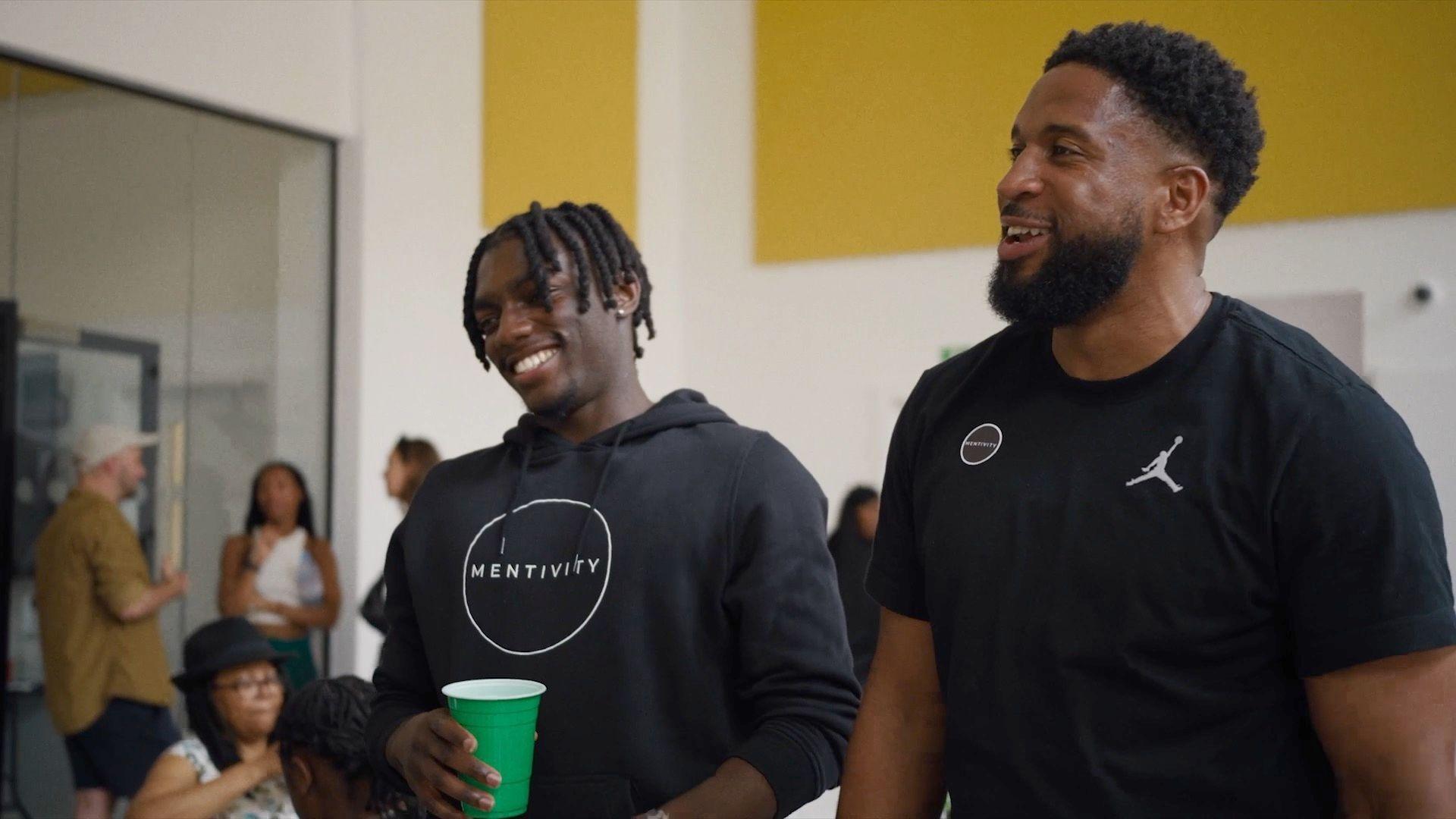
Mentivity founder Sayce Holmes-Lewis, right, said the club's opening was about "giving it back now to the next generation"
Mentivity founder Sayce Holmes Lewis said the opening of Mentivity House represented a "real full circle moment" for him.
He told the BBC that the youth club “really pays homage to the mentoring I received from people in the area".
“It's about giving it back now to the next generation because without those mentors in my life, I wouldn't be doing what I'm doing today," he said.
The club will host local young people for free over the holidays and there are plans for it to have a recording studio, where young people will be able to learn podcasting skills.
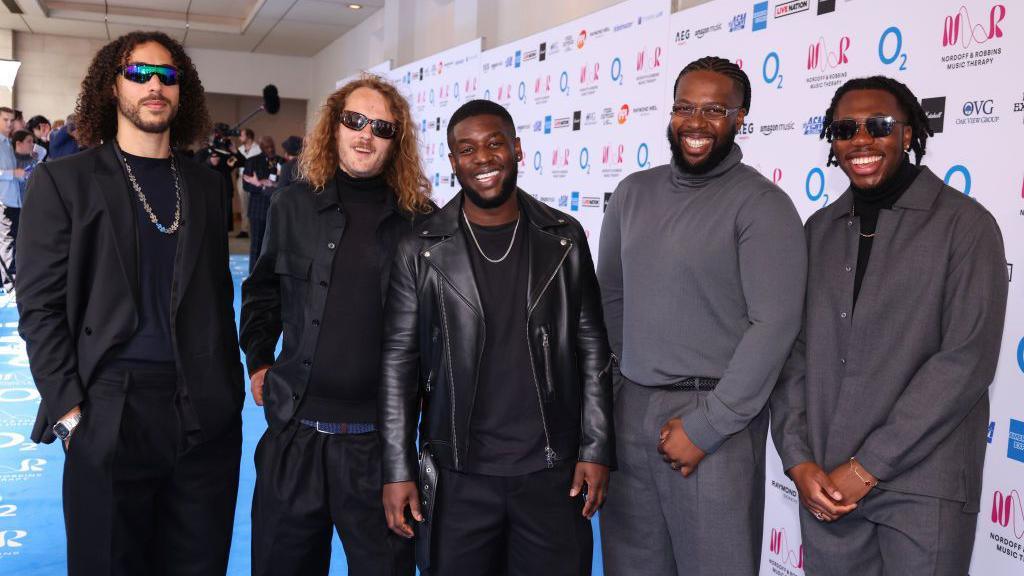
Femi Koleoso, centre, speaks about the influence youth clubs had on the Mercury Prize-winning Ezra Collective in 'The Centre'
Mentivity has also paired up with Spotify to release a documentary, external on the importance of youth spaces, featuring London artists Ezra Collective, Ms Banks and Novelist.
Directed by Adeyemi Michael, 'The Centre' showcases how youth clubs have created a space for young UK artists to nurture their musical talent.
Mr Holmes-Lewis said it was “amazing” to see the artists revisit their childhood.
“People don’t want us to experience joy in these environments - we get a bad rep in terms of what this community is and what it does but there’s so many great people that come from this community," he said.
'Music needs to diversify away from London'
- Published8 September 2023
The end of days at the Aylesbury housing estate
- Published28 November 2023
Mr Holmes-Lewis said the landmark moment for the charity had also come at a critical time for the youth work sector.
“We've lost so many spaces on the Aylesbury Estate and across the UK in terms of youth clubs,” he said.
“If we're not providing these spaces for them to develop, to learn and to be part of a community, then we're going to see more of what's been happening unfortunately in our communities.”
How many youth clubs have closed?
According to the YMCA, 490 local authority-run youth clubs closed across England from 2011 to 2023.
In a report released earlier this year, the charity said "despite these declines slowing in recent years, local authority-run youth services are a fraction of what they used to be".
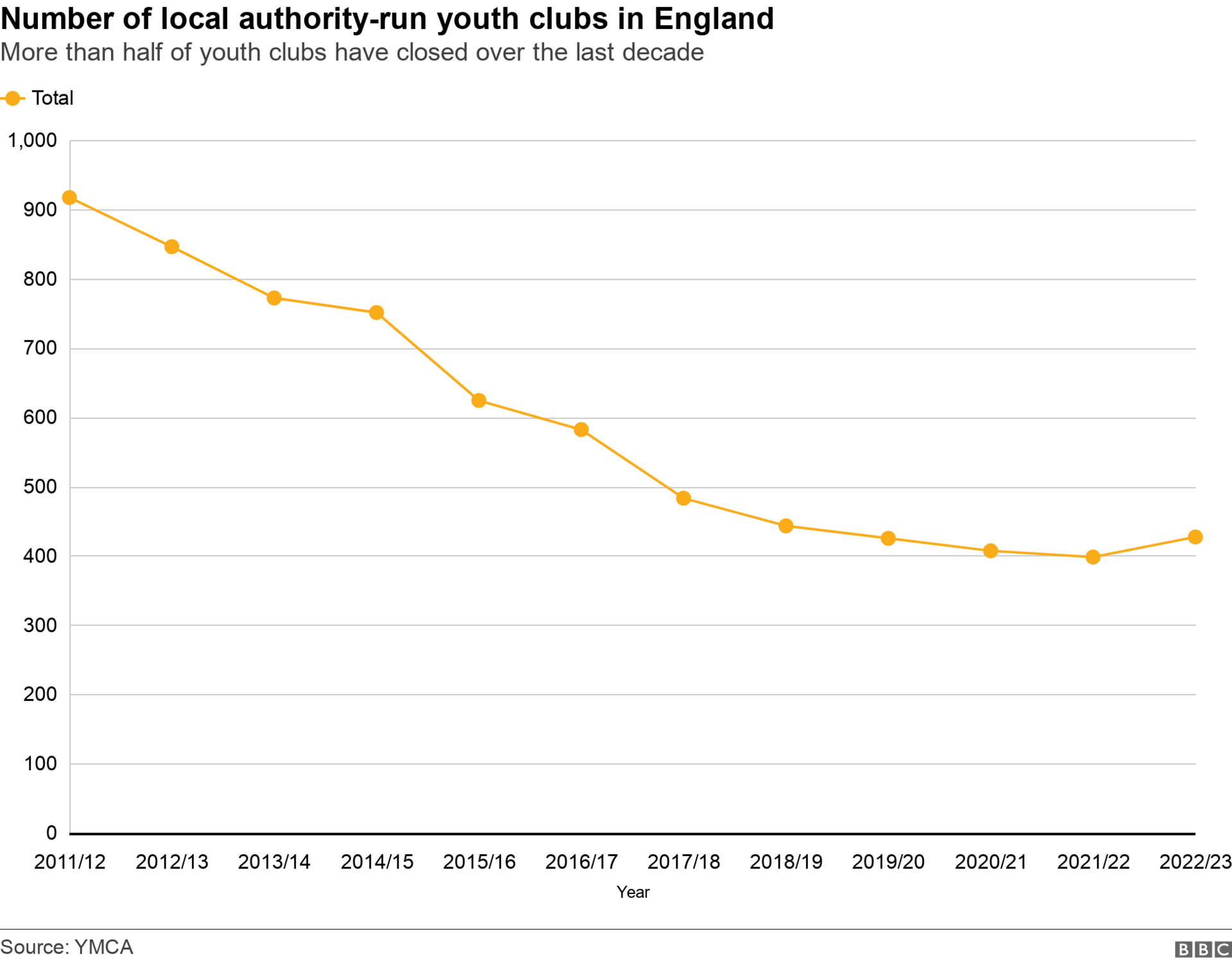
The number of local authority-run youth centres in England has dropped from 917 to 427 between 2011 and 2023
City Hall said it was a result of “the previous government’s austerity measures” that 130 youth clubs have closed their doors in London and there were 700 fewer youth workers.
For the youth organisations that are still operating, the future looks uncertain.
In a survey by the charity London Youth, 26% of youth organisations in London said they only had enough funds to operate for the next six months.
Almost half of the respondents (44%) said they only had enough resources for one year.
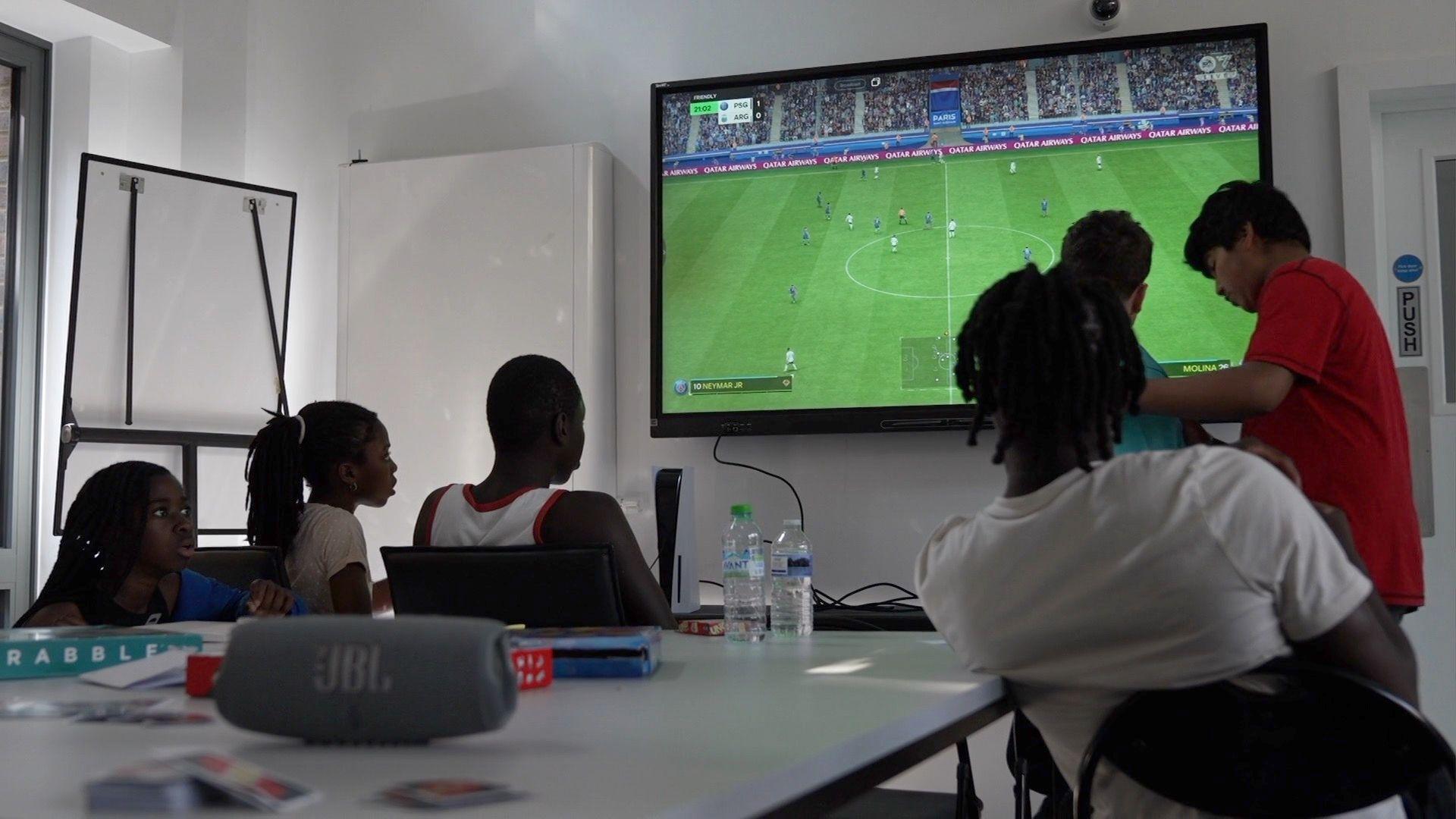
London youth clubs say they are struggling to secure long-term funding
London Youth chief executive Pauline Daniyan told the BBC that the charity's network of about 600 community organisations was “still suffering long-term losses”.
Ms Daniyan said: “These organisations play a vital role in the lives of hundreds of thousands of young people, yet their situation is precarious."
She called for “swift action”, adding that more investment was needed “to improve young Londoners’ physical and mental wellbeing, so our young people can thrive”.
A spokesperson for the Mayor of London said: “Alongside his Violence Reduction Unit, the mayor is investing in youth workers and mentors, creating up to 500,000 positive opportunities for young people.
“We’re also working with charity London Youth to help nearly 500 youth workers develop leadership skills and better support young people.
”The mayor looks forward to working with the new government in supporting vital services for young people, delivering on his commitment to invest in London’s youth clubs and funding a further 250,000 positive opportunities for young Londoners.”
Mr Holmes-Lewis said that while he welcomed these pledges, youth workers “need to make sure that we hold them to account”.
There was also a need to look at “how we get young people focused on a passion that’s linked to a career and that's visible and viable”, he said.
Mentivity plans to create apprenticeship opportunities for the young people they mentor and is fundraising to keep its services going for the next three years.
"It's about social mobility and economic equity," Mr Holmes-Lewis said, adding that young people "can only thrive with investment and opportunities".
Listen to the best of BBC Radio London on Sounds and follow BBC London on Facebook, external, X, external and Instagram, external. Send your story ideas to hello.bbclondon@bbc.co.uk, external
Related topics
- Published1 August 2024
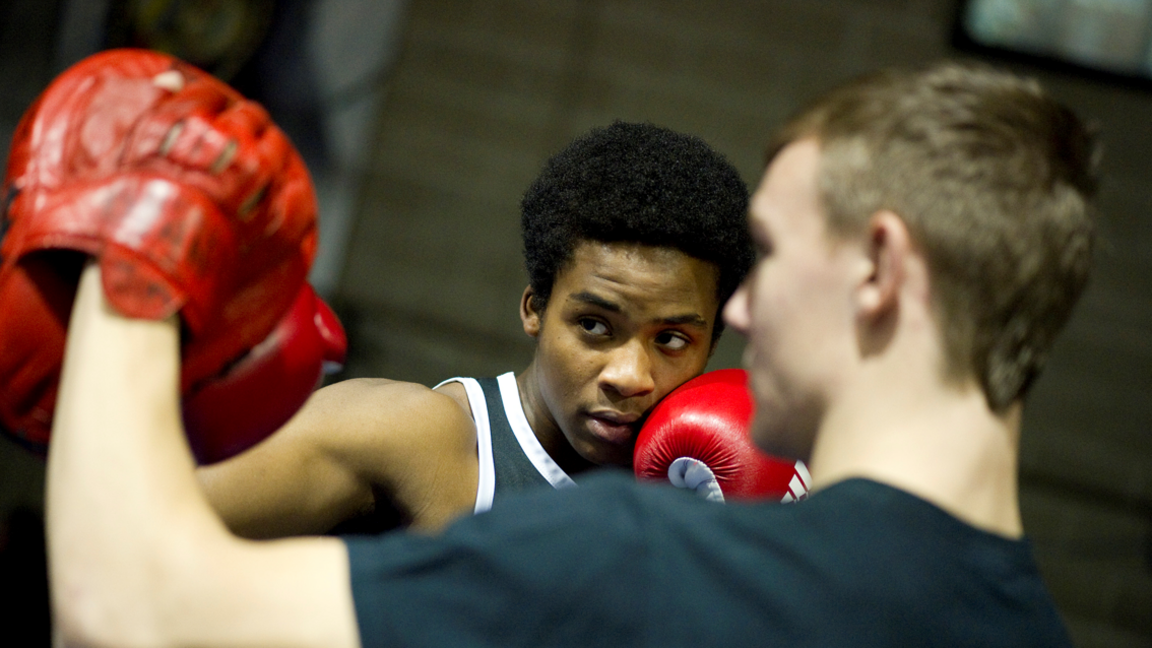
- Published29 July 2024
